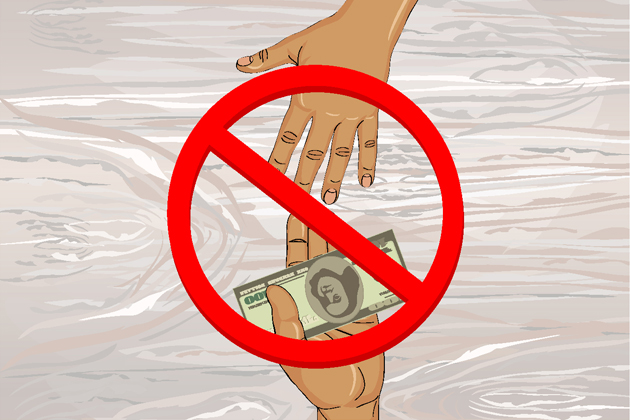 It isn’t difficult to understand that one of the main reasons a salesperson would make a bribe is to make a sale.
It isn’t difficult to understand that one of the main reasons a salesperson would make a bribe is to make a sale.
This kind of corrupt practice is common and even expected in many areas of the world. It is why sales and anti-corruption compliance are so often uttered in the same breath.
Sales and compliance is a pairing that must be examined closely and continuously. However, risk assessments often aren’t thorough, internal controls don’t catch suspicious transactions, and one side doesn’t know (or trust) what the other is doing.
When the compliance and sales functions aren’t aligned with respect to how they approach anti-corruption risk, all of the above missteps can happen. Even more frustrating is that most sales leaders want to behave ethically—they want to close sales based on their own skill rather than by cheating. Winning is that much sweeter when they do. So then, how do things keep going awry in practice?
For starters, the emphasis on ethical conduct doesn’t resonate with the sales department because they hear multiple conflicting messages. One comes from the top, that ethical conduct is important. The other comes from somewhere below the top, that sales goals must be met by any means necessary.
This is a situation that requires some serious thought; it means that your corporate culture isn’t unified. Instead, you have a subculture (meet sales goals) that contradicts the ethical culture the CEO and other senior executives like to talk about. If you can identify that you do have conflicting messages and subcultures at your organization, then you can attack that subculture with practical steps to stamp it out.
One place to start would be rethinking your incentive program. Sales teams live and die on incentives—and there’s nothing inherently wrong with that, if your incentives push them in the correct way. Do your incentives punish failure more than they reward success? Do they encourage cooperation among the team or do they pit sales reps against each other?
Of course, independent measures should be part of a compliance program, such as accounting controls that block suspicious payments to intermediaries, or audits of due diligence procedures. The compliance function always needs to act with independence, and verifying the sales team’s compliance with policy and procedure is part of that job.
Even so, companies don’t really encourage compliance itself. Rather, they explain compliance, which is a procedure that employees should follow. They encourage ethical conduct, which is (or should be) a core corporate value—and when employees embrace it, their behavior naturally follows the compliance procedures companies have established.
What’s the point of making this seemingly small distinction? The reason is that companies can indeed enforce compliance with the sales team: by auditing and punishing non-compliant behavior or sealing up opportunities for non-compliance. If those efforts are strong enough, you might even prevent compliance failures on those efforts alone.
Ultimately, though, what will the financial or cultural cost be? A stringent system of controls, rules, and punishment might make for fewer FCPA mistakes (although that’s a stretch). It also sounds like a painstaking system to implement and a miserable place to work.
The alternative is to make sure that ethical business conduct is at least an equal priority (if not greater) to hitting sales targets. Then you can ask: are we structuring incentives to support that priority?
Are we relying on intermediaries and agents to the minimum amount necessary? How many due diligence duties can we put onto the sales team, and how many do we place with compliance or audit to trust but verify?
These are important questions and their answers are not always easy to find.
In most organizations, with pre-existing sales functions, business practices, and cultures, the answers will also be laborious to implement. At least, however, sales and compliance will be aiming toward the same objective of doing business ethically—and that is what alignment is.
Working from a place of alignment stands a far better chance of keeping sales practices compliant than having sales and compliance teams circling each other in distrust.
That leads only to frustration and a negative work environment. Encouraging ethical conduct rather than merely “teaching compliance” will position your organization for greater success.
